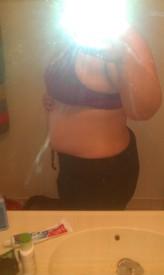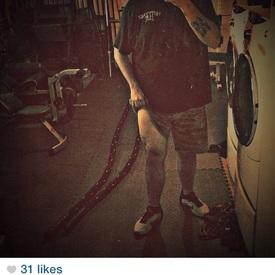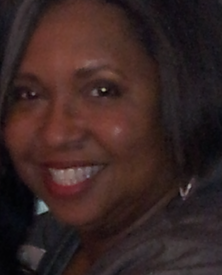Measuring- Cup vs Scale

Al_Ann_momma
Posts: 12 Member
Which is a more accurate measurement? For instance, If I cook frozen peas and carrots and the serving size is 2/3 cup (90g). I can measure out 2/3 cup and then weigh out 90 grams and the 90 grams is a bigger pile than the 2/3 cup. I am just using this as an example, eating a little more veggies I personally find is fine. I would like to find out which is more accurate because I don't want to be eating more than I need too of some things. Thanks 
0
Replies
-
weight.... its always weight.0
-
Weight is the most accurate. The cup, it depends on how the pieces are sitting, how much space is between them, where on the cup you are reading.. Weigh it.
This video (once you get past the strange intro) shows very well how off the measuring cups/spoons can be. http://www.youtube.com/watch?v=JVjWPclrWVY 0
http://www.youtube.com/watch?v=JVjWPclrWVY 0 -
It'\s obviously weight.
A gram is a gram. It\s always going to be a gram. A cup is not always a cup. Nobody packs a cup the same way twice.
Mass > Volume.0 -
I always weigh solid foods. Sauces, liquids, etc. all get measured in cups/tbsp/whatever.0
-
Weight~Digital food scale for food and measuring cups for liquids!!0
-
absolutely weight!! most of the times I get more with weight, and then I question it for 5.2 seconds, then say well the package says so and so grams, so i eat the larger amount (weighed out amount)
 0
0 -
weight! You'll get more shredded cheese by weight than by volume (yay!) but less sour cream by weight than by volume (boo!)
For example- 1 serving of sour cream is 2 TBSP- 30 g, 60 calories. I used to measure out my 2 TBSP and log my 60 calories. Yeah- wrong. My 2 TBSP was actually 57 grams, almost 2 whole servings! And that was with me leveling off the top of the tablespoon, not heaping it. I was actually eating 114 calories instead of the 60 I was logging.
I would also accidentally get some on the outside of the measuring spoon and lick it off. Now is that going to cause me to not lose weight? No. But it will prevent me from getting an accurate picture of my calorie intake, especially when you consider how many times this would add up of the course of a day, a week, a month! Now, I put my container of sour cream on the scale and 0 it out. Then I scoop out our scream until it reads -30g, and I know I'm getting 1 serving, even if I lick the spoon 0
0 -
Great thread. I dont own a food scale. Any suggestions on portion estimation alternatives? I only have a measuring cup0
-
If it's liquid I measure it in a cup. (i.e. Almond Milk)
If it's solid I weight it. (i.e. Turkey Breast)
Things like cheese I will weigh in a cup like 1/4 cup. To be honest the margin for surplus is probably minimal and I generally don't even fill the cup up all the way.0 -
Someone posted a link to this video yesterday. I thought it was really surprising, and I already knew the scale was more accurate.
 http://www.youtube.com/watch?v=JVjWPclrWVY 0
http://www.youtube.com/watch?v=JVjWPclrWVY 0 -
Great thread. I dont own a food scale. Any suggestions on portion estimation alternatives? I only have a measuring cup
A good scale is one of the best pieces of equipment you can own. Even more so if you bake bread or cook regularly for measuring ingredients. I have the OXO food scale, got it earlier this year with a gift card from Amazon. It weighs in both grams and ounces and comes highly recommended from my favorite cooks for home use.0 -
Great thread. I dont own a food scale. Any suggestions on portion estimation alternatives? I only have a measuring cup
The suggestion is to spend the $10-20 and buy a scale. It's well worth the investment.
Side note: I didn't realize until yesterday that meat is to be measured raw, not cooked.0 -
If I have a weight per serving on something, I'll always use weight as it is more accurate. I weigh peanut butter, cream cheese, even liquids if I'm using them in large enough quantities and I have a weight on either thecontainer or on the nutritional information.
Most foods are not symmetrical or homogenious, so there's a lot of judgement as to what constitues a small peach/onion/banana/zucchini or whatever. If someone doesn't level off their measuring cup/spoon, their interpretation of 1 cup or tablespoon can be off significantly in either direction depending if you pile or shake the measuring instrument. When you weigh, you have consistency, which can be important when you're trying to tweak your diet for whatever results you're targetting.0 -
Someone posted a link to this video yesterday. I thought it was really surprising, and I already knew the scale was more accurate.
 http://www.youtube.com/watch?v=JVjWPclrWVY
http://www.youtube.com/watch?v=JVjWPclrWVY
OMG
And here I thought I was being good by using level spoons for my dressings and things. Damnit. :grumble:0 -
Someone posted a link to this video yesterday. I thought it was really surprising, and I already knew the scale was more accurate.
 http://www.youtube.com/watch?v=JVjWPclrWVY
http://www.youtube.com/watch?v=JVjWPclrWVY
OMG
And here I thought I was being good by using level spoons for my dressings and things. Damnit. :grumble:
I was brought up thinking the "smaller" spoon is a "teaspoon" and the "larger" spoon is a "tablespoon"....
When you measure boy you find out how quick you are wrong.0 -
Great thread. I dont own a food scale. Any suggestions on portion estimation alternatives? I only have a measuring cup
The suggestion is to spend the $10-20 and buy a scale. It's well worth the investment.
Side note: I didn't realize until yesterday that meat is to be measured raw, not cooked.
I ran into that, too. /sigh There's even entries for the "cooked" version on things. They're wrong. <_< Now I measure out the raw, cook, find the difference, and then figure out the calories. It's a good thing I love math. :laugh:0 -
Great thread. I dont own a food scale. Any suggestions on portion estimation alternatives? I only have a measuring cup
Invest in a scale. Any digital scale that has a zero/tare function and can switch between oz and g will do. No need to spend a ton of money.0 -
Someone posted a link to this video yesterday. I thought it was really surprising, and I already knew the scale was more accurate.
 http://www.youtube.com/watch?v=JVjWPclrWVY
http://www.youtube.com/watch?v=JVjWPclrWVY
OMG
And here I thought I was being good by using level spoons for my dressings and things. Damnit. :grumble:
I was brought up thinking the "smaller" spoon is a "teaspoon" and the "larger" spoon is a "tablespoon"....
When you measure boy you find out how quick you are wrong.
Well, I meant standard measuring spoons for what it's worth. My "small" spoons are different sizes, and I've never used them as a direct measuring tool. More or a "that looks good for this recipe" tool. Granted, that was before starting the journey to actively lose weight.
On the plus, my husband is willing to work out with me since he keeps going over his calories for the day. :laugh:0 -
Great thread. I dont own a food scale. Any suggestions on portion estimation alternatives? I only have a measuring cup
The suggestion is to spend the $10-20 and buy a scale. It's well worth the investment.
Side note: I didn't realize until yesterday that meat is to be measured raw, not cooked.
I ran into that, too. /sigh There's even entries for the "cooked" version on things. They're wrong. <_< Now I measure out the raw, cook, find the difference, and then figure out the calories. It's a good thing I love math. :laugh:
To look at this a different way- let's say you want to cook up some marinated chicken. Go into the recipe builder and enter the weight of your raw chicken. Enter your marinade. Cook and weigh your chicken again, now enter the total oz or g as the number of servings in the recipe. Then to add to your diary, enter the number of ounces that you're eating as the number of servings. Example- I cooked 29 ounces of chicken, added 1/4 cup olive oil and a season packet. Cooked it came out to 27 ounces/servings, or 45 calories per ounce. Now I can weigh my cooked chicken and know it's accurate.
To compare that to the database, the first selection for "marinated chicken breast" is 140 calories for 4 oz. As a newbie, I measured 4 oz cooked chicken and logged it as 140 calories. Now that I have my own recipe, I know that 4 oz of (my) cooked chicken is 180 calories.0 -
Weight is the most accurate. The cup, it depends on how the pieces are sitting, how much space is between them, where on the cup you are reading.. Weigh it.
This video (once you get past the strange intro) shows very well how off the measuring cups/spoons can be. http://www.youtube.com/watch?v=JVjWPclrWVY
http://www.youtube.com/watch?v=JVjWPclrWVY
Great video and very eye opening. Thanks you for posting. I does make me re-think how I have been measuring. Not what I do NOT thank you for is that horrible music that I can not get out of my head.:laugh:0 -
Portion control is essential for losing weight. If you only have measuring cups, use them. They are much better than estimating and will be consistent over time. Scales are more accurate from a scientific POV, but that level of accuracy is not essential to losing weight. I do have scales and use them for meats and some other solids. They are helpful, and you should consider getting one, even if you need to save up for it. Don't wait to start measuring your food until you can afford one, though. Measure now with the tools you have.0
-
Thank You for all the responses!!! Now my husband will really think I am crazy for weighing everything- but I want the excess baby weight off before summer gets here!!! Thank You again.0
-
I've been here long enough to know better, but I was only using the scale to weigh meats. Duuuhh...
Now I weigh everything that I can (aside from liquids/salad dressing - unless the serving is in grams not mL). I just started weighing out peanut butter. Turns out, 1 tbsp is almost half a serving more than I thought I was getting!! Yeah it's only 40 calories, but if I have 2 servings, that's 80 extra calories, and sometimes I have PB more than once a day.
The other sad side is weighing pasta and rice. You do NOT get 1/2 a cup for 45 grams. lol :grumble:0 -
Great thread. I dont own a food scale. Any suggestions on portion estimation alternatives? I only have a measuring cup
Best purchase you could make as ithe difference it makes builds over time!0 -
Weight is the most accurate. The cup, it depends on how the pieces are sitting, how much space is between them, where on the cup you are reading.. Weigh it.
This video (once you get past the strange intro) shows very well how off the measuring cups/spoons can be. http://www.youtube.com/watch?v=JVjWPclrWVY
http://www.youtube.com/watch?v=JVjWPclrWVY
Sorry, I missed that you had just posted the same video. See? It really made an impression on people!0
This discussion has been closed.
Categories
- All Categories
- 1.4M Health, Wellness and Goals
- 398.2K Introduce Yourself
- 44.7K Getting Started
- 261K Health and Weight Loss
- 176.4K Food and Nutrition
- 47.7K Recipes
- 233K Fitness and Exercise
- 462 Sleep, Mindfulness and Overall Wellness
- 6.5K Goal: Maintaining Weight
- 8.7K Goal: Gaining Weight and Body Building
- 153.5K Motivation and Support
- 8.4K Challenges
- 1.4K Debate Club
- 96.5K Chit-Chat
- 2.6K Fun and Games
- 4.8K MyFitnessPal Information
- 12 News and Announcements
- 21 MyFitnessPal Academy
- 1.6K Feature Suggestions and Ideas
- 3.2K MyFitnessPal Tech Support Questions














